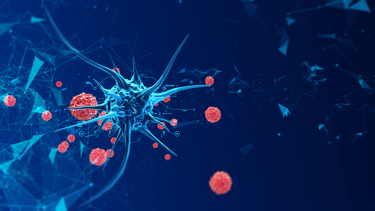A New Cost Paradigm For CAR Cell Therapies?

By Matthew Pillar, Editor, Bioprocess Online

Efficacy, safety, and convenience are hard-to-achieve attributes of cancer therapies, despite the best marketing engines in biopharma. Acepodia—a clinical-stage biotech focused on developing novel, targeted, allogeneic-cell based immunotherapies to treat cancers—has the gall to add affordable to the list of product attributes it’s striving for.
The company’s current lead candidate is ACE1702, a phase 1 therapy (clinical data expected in Q4 2020) which targets HER2-positive endometrial, ovarian, breast, and gastric cancers. While these aren’t incredibly expensive cancers to treat with standard-of-care therapies (monoclonal antibodies and antibody drug conjugates, for instance), Acepodia CEO Sonny Hsiao, PhD says his company’s proprietary ACC (Antibody-Cell Conjugation) technology platform holds the potential for a reduction to the current cost of care. That kind of savings is possible, he says, because the company’s platform is far from standard-of-care. Hsiao likens it to “molecular Velcro®” for tumor-targeting antibodies to deliver cancer-killing cells directly to the tumor, improving efficacy and overcoming immunosuppression.
The ACC technology attaches tumor targeting antibodies to the surface of a novel and proprietary human natural killer cell line (Acepodia’s oNK cells). The ability of antibody-directed NK cells to treat human cancers holds particular therapeutic promise for those cancers with metastatic potential, says Dr. Hsiao.
Cost Efficiencies Of “Off The Shelf” Bioprocessing
The aforementioned cost of treatment advantage that Hsiao seeks has been central to the mission since the company’s founding, and it’s rooted in the company’s approach to bioprocessing. Hsiao co-founded Acepodia in 2016 with Patrick Yang, PhD to address the challenges and limitations of oncological cell therapy, one of those being cost. “There is a limitation on current genetically-engineered CAR T cells,” explains Hsiao, and that’s in part due to the complexity of their manufacture. “From the initial patient blood draw to the administration of the therapy it takes some 400 manufacturing steps over the course of 3-4 weeks,” he says, adding that this complexity contributes to the treatment’s $400K price tag. “That’s an issue, especially considering that the Lymphoma and Leukemia liquid tumors that current CAR T cell therapies treat constitute only about 7 percent of newly diagnosed cancer patients,” asserts Hsiao. “The remaining 93 percent of cancer patients are those with solid tumors, yet there’s been limited work on CAR T cell therapy in the solid tumor field.”
Hsiao says Acepodia’s oNK cells, on the other hand, can be mass-produced under GMP conditions, are stable, and can be used as therapeutically targeted "cells in a bottle," off the shelf, because they don’t need to be tailored to individual patients and can be frozen and stored for months without losing potency. Hsiao says this scalability, coupled with the lack of need for expensive genetic engineering, contributes to the cost savings potential in comparison to currently available cell therapies.
“The manufacturing process is very different from that of CAR T cell therapies,” says Hsiao. “In short, we get our linker conjugated to an antibody, then we culture oNK cells in a bioreactor and conjugate another linker to those cells. We then mix the antibody and the oNK cells to achieve the product.”
Better Equipped For The Hostile Tumor Environment?
While Hsiao is quick to extol the manufacturing and cost efficiencies his platform enables, he’s also eager to point out the therapeutic advantages of the ACC platform. “We’ve seen limited success with current therapies due to the immunosuppressive attributes of the solid tumor microenvironment,” he says. “When tumors grow, they consume a lot of oxygen. They’re an acidic environment. Those conditions create a tough environment for T cells and NK cells to do their work,” he explains. “Using ACC, tumors can be penetrated by the NK cells now bioconjugated with the antibody, which equips it to function in low oxygen, low PH conditions.”
CAR Cell Therapy Complements ACC Platform
At BIO Digital this week, Acepodia announced that it has developed its first CAR cell therapy candidate to target hematological malignancies. The candidate, ACE1755, is a CD19 targeting natural killer cell therapy that the company says demonstrates promising anti-cancer activity in a preclinical lymphoma model. Similar to ACE1702, the new CAR therapy leverages the company’s oNK cell line, indicating Acepodia’s intent to produce a more cost effective and scalable alternative to current CD19 targeting cell therapies. Acepodia expects FDA IND clearance for ACE1755 in the first quarter of 2021.
Learn more about Acepodia and its pipeline here.
